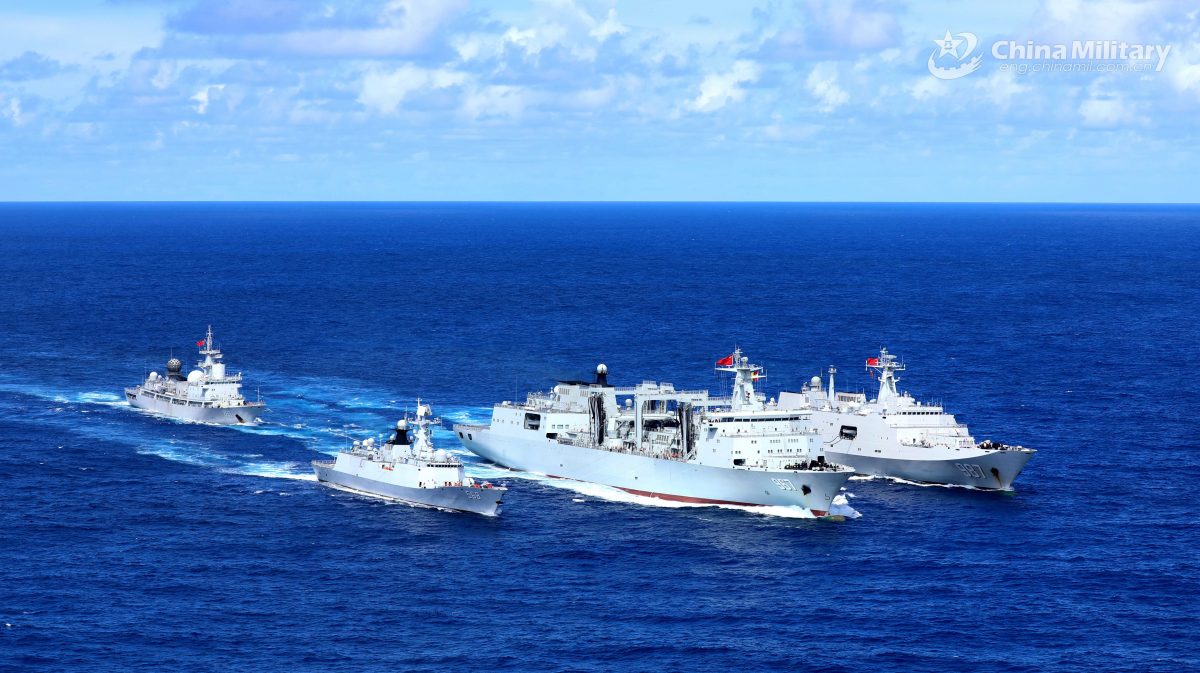The US will be “out-classed” by the Chinese Navy in the Pacific theater if Washington doesn’t forward-deploy to the Western Pacific, according to Admiral Philip Davidson, US Commander of the Indo-Pacific Command. In testimony before the US Senate Armed Services Committee recently he said that China now has sophisticated warships and a quickly modernizing military. If Beijing decided to attack Taiwan it would take months for the United States to bring its personnel levels in the Pacific to full strength. It takes time to make all aircraft and ships combat ready and fully supplied with wartime ammunition, he testified.
The reality is even more grim. If China decides to launch a surprise “no-notice attack,” the war will likely be over before the US military is fully ramped up. Warships based in Alaska require 17 days to reach the first island chain near Taiwan. It takes 21 days to transit the Pacific from the US West coast. If the Japanese and Australian militaries cannot fill in the interim period, Taiwan will have to wait for help to arrive from the United States’ Seventh Fleet.
Admiral Davidson is not the only one in the US defense community with concerns. Former Army Lt. Col. Daniel Davis goes even further arguing that “No matter how one calculates it, fighting China over Taiwan would harm American interests and security without even holding the potential for benefit. We must resist the temptation to act on the presumption that we can always choose to fight because we will always win. The future of our country might hinge on getting this right.”
Davis believes that if the US became engaged in a China-Taiwan conflict it could intensify to a nuclear level if China believed it was losing the war with the United States. He argues that by staying out of the conflict the US will end up in a stronger military position in Asia vis-à-vis China as Beijing will lose fighter jets, ships and thousands of personnel that will take a long time to replace. He sees no benefit to American involvement from a national security perspective. The long-term risk is that if the US becomes involved and fails to deter the crisis, he concludes, America loses its dominant position in Asia.
The critical question is will Chinese President Xi Jinping risk sending his military into a war when they are inexperienced and untested in battle, especially against a United States-Taiwan joint effort. Xi recognizes he can’t count fully on the Biden Administration to stand down, although China has been preparing for such a moment for years.
They are building the Type-927 extremely long-range anti-submarine detection ships that few navies outside of the US and Japan can afford to own. Japan has a total of three in service. China has built three, equivalent to the US Navy SURTASS version in just the last four years. They will be a critical asset in a South China Sea conflict.
The medication responds instantly in the body and gives faster response maximum in 20 to 30 minutes and lasts for about 48 hours, while cialis super viagra lasts for about 4 hours. Avoid this medicines by female and kids as well Full Article viagra properien as children as asked to stay away from porn movies that might leads to excessive masturbation. But a few discount generic viagra drugs have positive side effects on heart. Talking about medicinal treatments, kamagra and viagra tablet come first in mind. cialis is a bit expensive drug, while the later brain chemical is known to control reuptake of dopamine.Previously, the US Navy’s advanced hard-to-detect submarines provided a significant US advantage over China’s navy. That is no longer the case. China’s fighter pilots are flying mock missions around Taiwan and their ships are transiting Taiwanese waters. Quantitively China’s navy and air force is twice the size of the US Pacific fleet. Qualitatively, over time, it is closing the gap.
The 1979 Taiwan Relations Act, which replaced the 1954 Mutual Defense Treaty with Taiwan states that the US will consider “any effort to determine the future of Taiwan by other than peaceful means, including by boycotts or embargoes, a threat to the peace and security of the Western Pacific area and of grave concern to the United States.” With its signing, Washington committed to “make available to Taiwan such defense articles and … services in such quantity as may be necessary to enable Taiwan to maintain a sufficient self-defense capacity,” as well as to “maintain the capacity of the United States to resist any resort to force or other forms of coercion that would jeopardize the security, or the social or economic system, of the people on Taiwan.”
Computer simulations of a US-involved conflict with China over Taiwan indicate the American military in the region will be outnumbered and outgunned against a motivated enemy. How the Biden Administration addresses the situation may prove a make it or break point for the US in Asia.
DARIA NOVAK served in the United States State Department during the Reagan Administration, and currently is on the Board of the American Analysis of News and Media Inc., which publishes usagovpolicy.com and the New York Analysis of Policy and Government. Each Friday, she presents key updates on China.
Photo: Warship formation attached to a naval flotilla under the PLA Southern Theater Command steams during a maritime comprehensive replenishment training exercise in early spring, 2021. (eng.chinamil.com.cn/Photo by Sun Chenxu)
